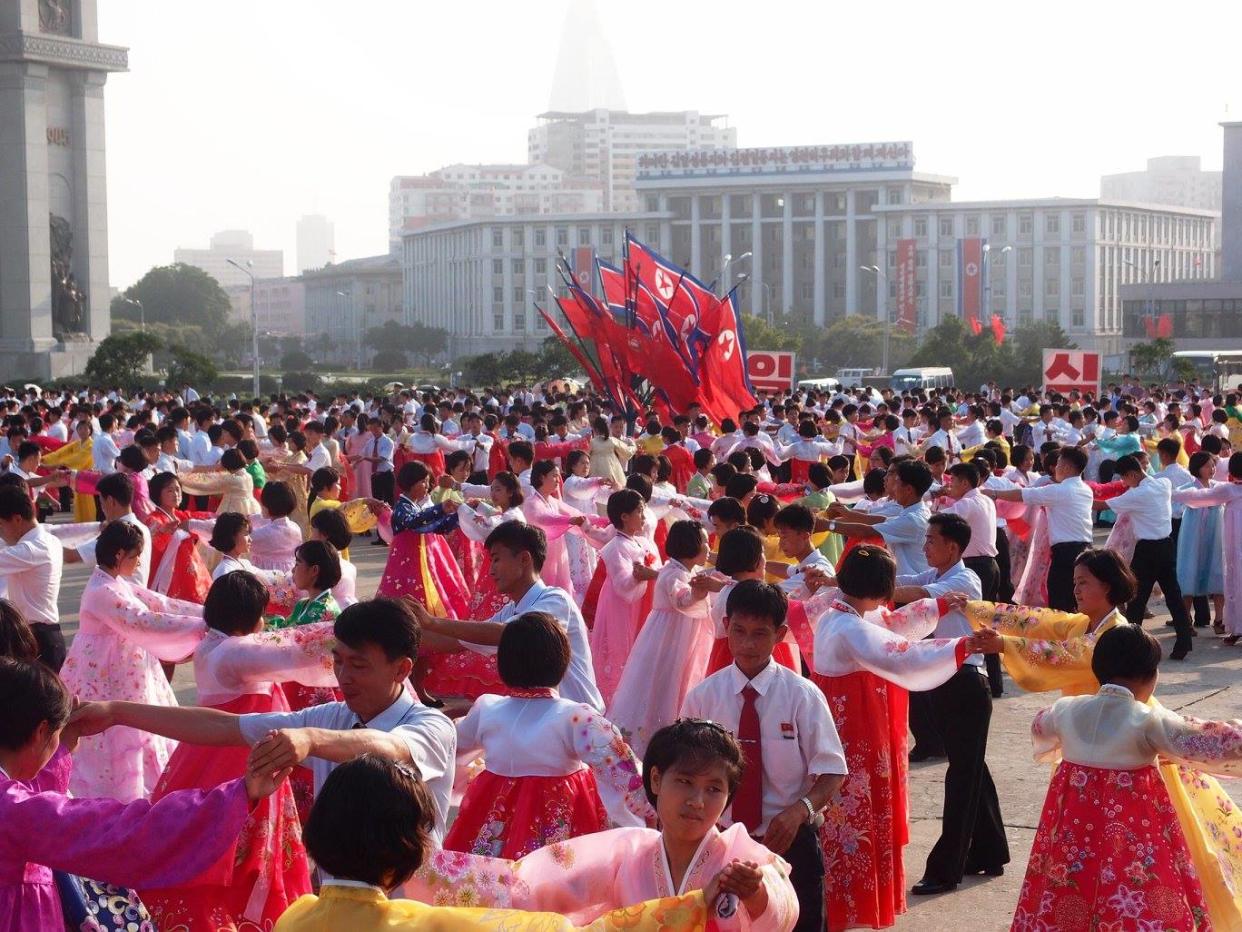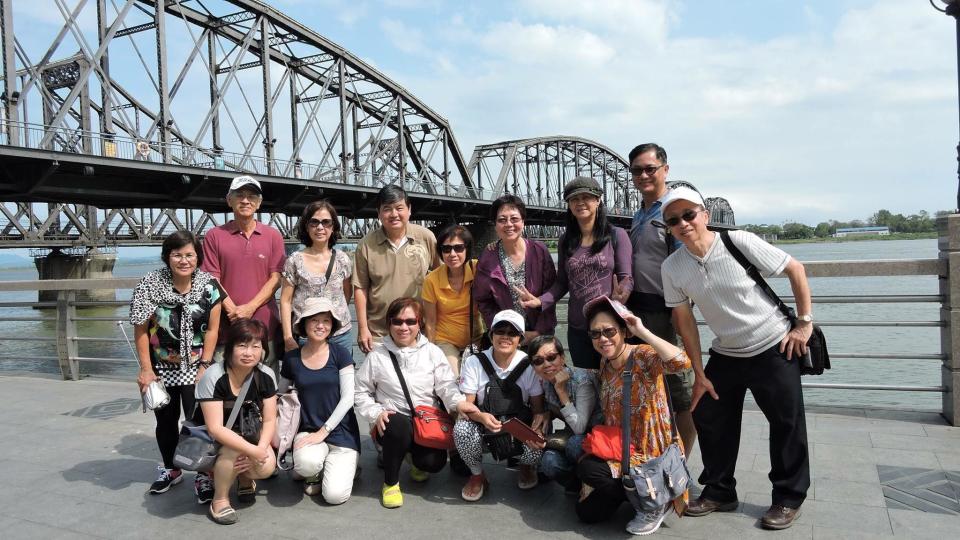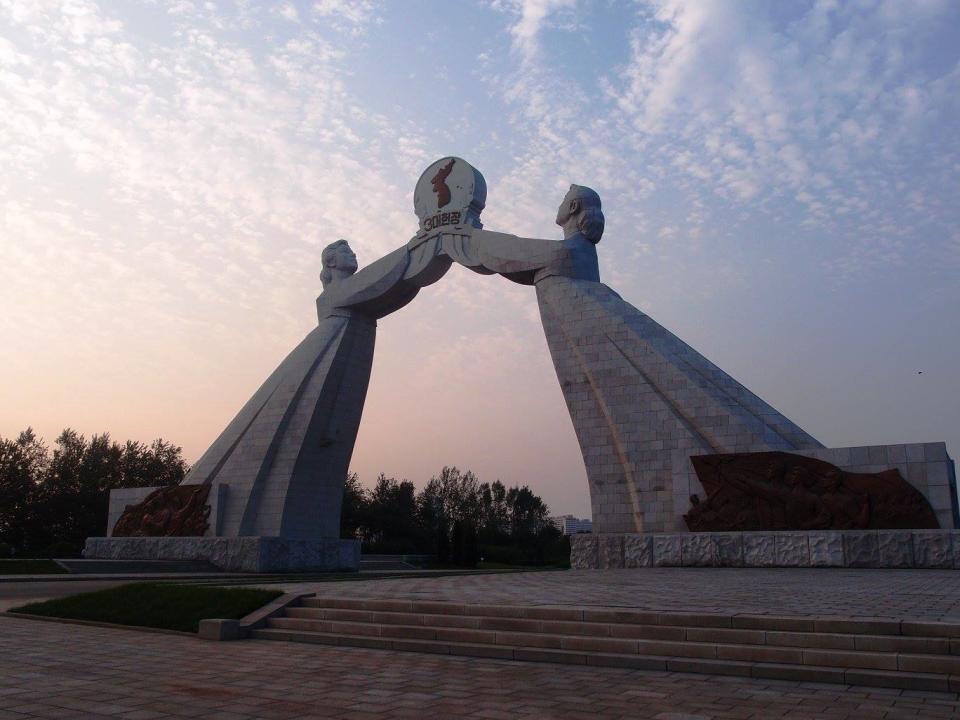More Singaporeans interested in travel to North Korea after Trump-Kim summit

In the wake of the historic Trump-Kim summit, there has been increased interest among Singaporeans in traveling to the Democratic People’s Republic of Korea (DPRK).
Andrew Darwitan is a product and marketing executive with Country Holidays, one of the few agencies in Singapore that arranges tours to North Korea. During the week of the summit, the agency’s North Korean itineraries had the highest search traffic among its destinations, he noted.
While Country Holidays has been running tours to the DPRK for more than a decade, Darwitan told Yahoo Lifestyle Singapore that the country has remained a “niche destination” over the years due to “strict regulation” and “limited tourism marketing efforts” by the North Korean government.
“There (is) definitely an increase in both enquiries and interest for North Korea tourism this year. We anticipate that (interest among Singaporeans) will gradually increase as North Korea slowly opens up and Singaporeans become aware of the appeal of the nation as a travel destination,” added Darwitan.
Universal Travel, which also arranges tours to North Korea, is not currently doing so.
One Singaporean keen on travelling to North Korea is Danny Lee, director for strategic partnerships at data analytics and strategic communications firm DREP Asia. The 55-year-old, who has long been interested in going to the DPRK, is planning a trip there with two other friends.
“This is one country we hear so much about, and yet it is so closed,” said Lee, who is also interested in exploring business opportunities there. “After the summit, people are starting to think that things have changed there. It is not as frightening as before. Previously, people only knew it from file footage of military parades.”
He added, “I think there is a lot of curiosity. After Kim’s trip here, Singapore will also have a good image and a good reputation there.”
Restrictions on travel

Restrictions on tourists in the DPRK are myriad. For example, all normal passport holders require a visa to visit North Korea. Tour groups must be accompanied by guides who are specially appointed by the Ministry of Tourism, while independent travel in North Korea is usually not possible. Travellers can only explore the country with specific tour agencies.
Numerous reports also suggest that tourists are only shown a sanitised version of the country, where the government commits “unspeakable atrocities” against its own people on a vast scale, the United Nations Human Rights Council said, following a Commission of Inquiry in 2014.
According to media reports, the country of 25 million welcomes just 100,000 tourists each year but aims to increase this to two million by 2020. By contrast, Singapore, which has a fifth of the DPRK’s population, saw 17.4 million tourist arrivals in 2017.
Emily Song well remembers the experience of leading a 28-strong tour group to North Korea in 2014. The group travelled via Shenyang and Dandong before taking a train into the DPRK, where they were accompanied by two North Korean guides throughout the trip.
“They are very secretive. When we tried to take photos on the road in kampung (village) areas, the guides would stop us. Before the trip, we were not even able to email or call our counterparts there,” recalled Song, a sales manager with almost 30 years experience in the travel industry who organised the trip through a Chinese agency.
But Song also has vivid memories of beautiful mountains and beaches and meeting North Koreans who were “straightforward” and “honest”. Many of her tour group were also pleasantly surprised by the country but did find that many people there were “conservative”, as they did not want their photos taken.
“I expect more interest from Singaporeans in travel to North Korea after the summit. I think it’s time to explore North Korea. Hopefully, after the summit, they will open the doors for us,” added Song, who hopes to visit again.
‘Going somewhere forbidden’

Simon Cockerell is the general manager of Beijing-based Koryo Tours, which runs up to 150 group and private tours to North Korea each year. Asked if his agency has seen increased interest among Singaporeans, Cockerell said it was too soon to tell. But he noted that Singaporeans are well-represented on these tours, while many Singaporeans have also run in the annual Pyongyang Marathon.
While Koryo Tours has seen a spike in interest in travel to the DPRK since the summit, Cockerell pointed out that the date for the Arirang Mass Games in September was confirmed in the same period. The mass gymnastic and artistic festival, involving tens of thousands of participants and the first edition of the event in five years, is a big draw for tourists.
“There are probably more books published on North Korea than any other country, so it does drive a lot of curiosity. There is that excitement about going somewhere forbidden, even though it’s not forbidden,” said Cockerell.
“But there are a lot of rules and regulations and restrictions for tourists in the country, and there’s no sign that that that’s going to end, because it’s not related to the summit.”
Asked if the restrictions on travel in North Korea would put him off, Danny Lee noted, “I believe this is something which most people who want to travel (there) understand. Things on the North Korean side may also ease over time. China went through that phase too, and I’m optimistic that changes will happen over time.”
Follow Yahoo Lifestyle Singapore on Facebook.
Related stories:
‘I like a challenge’, says Singaporean co-founder of North Korea’s first fast food joint
‘Huge potential’ for doing business in North Korea, says Singaporean who opened Pyongyang law firm
Can I Travel to North Korea? Number of Tourists Crossing From China Expected to Peak



